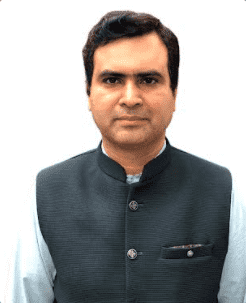Here are some speculations and expectations of various industry experts from the upcoming Budget of 2022. Pandemic has already banged the market growth not in technology but in other sectors as well since its inception. However, life is not going to stop so the enthusiasm of various enterprises and startups to get India’s derailed economic growth back on track. Well, we are not experts in this area but the names given here are, so let’s hear their thoughts and what is their hope from the nation’s Finance Minister this time.

Mr. Divay Kumar, Co-founder & CEO – O4S
The market is still in recovery mode with many MSMEs already shut or are on the verge of closing down in the near future. The unemployment rate is also expected to shoot up if businesses run out of cash to operate. As a matter of fact, MSMEs employs are a large chunk of the country’s population and simultaneously contribute 29% to the Gross Domestic Product (GDP). These facts very well highlight the vulnerabilities we could face, if necessary, measures are taken to revive the MSME sector.

We can expect the 2022 Union Budget to comprise more funds/schemes and initiatives that are focused on promoting technology and reviving the slowing economy. Startups who are considered to be the platform that could take the country to new horizons should be provided financial relief so that they can extend their runway for operations.
Moreover, relaxations in GST, lending rates, and other regulations would support the ease of doing business in the country. With such reforms, businesses especially MSMEs could get the support of investors.
Technology-centric schemes should also be given a place in the budget as we are moving towards digitization. COVID-19 had taught us many lessons and it also made businesses of all sizes realize the importance of technology when it comes to business continuity.
EV Industry – Mr. Anmol Bohre, Managing Director & Co-founder, Enigma

The upcoming Union budget must restructure the use of FAME II funds since just 5% of the Rs 10,000 crore allotted under FAME’s second phase was used from April 2019 to March 2021. As a result, the budget might recommend certain changes to boost incentive take-up. Furthermore, the GST on lithium batteries is now levied at 18% when sold separately and 28% on lead-acid along with certain spare parts, while the vehicle sold with battery is levied at 5%; and because the MoRTH has permitted the registration of EVs without batteries, cars without batteries should also come within the EV GST category. As a result, we encourage the government to cut it to 5%, equivalent to the GST on EVs.
In the reconstruction phase of the economy, which all stakeholders must focus on, it is critical that MSMEs have simple, flexible, and seamless access to finance. We anticipate that the Union Budget FY23 would include schemes similar to SLS II-NBFC 2021 in order to immediately revitalize the economy by assisting MSME and the emerging fintech ecosystem.
Overall, unlike the Budget 2021, this year, the government must utilize the opportunity to lay out changes focussing on the long-term goals of the EV segment, which shall prompt a substantial surge for vehicles across sectors. This shall also empower the EV segment to flourish in the pandemic recovering world.
Mr. Ashok Rajpal CEO Founder Ambrane
The upcoming Budget 2022 would be critical in restoring India’s pandemic hit MSME and the manufacturing sector. It is projected that the core topic of Budget 2022 would continue to offer stimulus to the market for locally created goods to minimize import reliance and support the ‘Make in India’ effort.

To promote Make in India, the government must incentivize R&D by providing subsidies and fiscal stimulus to the private sector. The decrease of corporate taxes and the implementation of various PLI programs in the Union Budget 2021 have boosted domestic manufacturing; nevertheless, the industry now requires an additional push with further Make in India plans and incentives for electronics manufacturers. PLI initiatives will be extended to attract greater private investment and engagement in the industry. The industrial business needs assistance in tax cuts and simpler legal procedures. Compliance should be simplified, and unnecessary legislation should be phased away. This will increase trust and confidence between the private sector and the government.
The forthcoming budget should prioritize employment too. Budget 2022 must focus on job creation via private and public sector engagement in areas with backward and forward economic integration. The budget should accelerate the implementation of the National Retail Trade Policy to streamline the licensing process, thereby making it seamless for growth. As export incentives have been reduced, trade policy must now encourage MSMEs to expand outside their boundaries. This would help India establish itself as a worldwide market leader. Reducing compliance and regulatory burden and providing financial incentives to large-scale projects would also help bolster India’s Industry 4.0 impetus.
Mr.Arjun Bajaaj – Director, Videotex International Group
The forthcoming Union Budget 2022 is crucial for the manufacturing sector, which contributes around 20 percent of India’s GDP, and shoulders the most significant responsibility of creating jobs, securing investment, and propelling industrial and country growth. However, to go any further, the Government must incentivize and support investments in the manufacturing ecosystem and stimulate local innovation among technology providers.

Now for 2022, the manufacturing Industry needs support through Tax reforms & simplified legal procedures to recover from the pandemic-induced economic shock. A long-term 20-year semiconductor plan is required for India. Currently, imports fully fulfill India’s semiconductor needs. There is no display Fab in India, and the moment has come to focus on building this crucial sector in the country. Because there is no semiconductor or display set up in India, the government should levy zero customs tariffs.
Given the goals for TV, mobile phones, and IT hardware manufacturing, we should be able to build a substantial display business and generate value in India. A dedicated Freight Corridor will be a game-changer for the manufacturing supply chain while also controlling prices in the industry. Furthermore, improving logistics infrastructure (better roads, for example) and offering cost-effective and efficient logistics are critical components of attaining the necessary industrial development. For a smooth and efficient road transportation experience, I encourage the government to explore the ‘One Nation, One Permit, One Tax’ system.
Overall, the upcoming budget should boost domestic manufacturing and introduce policies that will allow global companies to invest and manufacture in India.
Bhavin Turakhia, Founder and CEO of Nova (Flock and Titan)
The Union Budget should accelerate the growth of the digital economy by making it easier for businesses to invest in tools and technology that are crucial to their growth. The government can spur innovation in India by creating policies that incentivize technology product exports and encourage startups to make in India for the world.
Puneet Gupta, Managing Director & Vice President, NetApp India
Following two years of economic uncertainty caused by the pandemic, and amidst the third COVID-19 wave, I am expecting that this year’s Union Budget will be a pragmatic one. There is an urgent need for the Government of India to continue its focus on infrastructure spending to boost the economy and increase employment opportunities. It will be great to see the Union Budget allocate funds toward incentivizing the use of emerging deep technologies like artificial intelligence, intelligent automation, blockchain, augmented / virtual reality, etc., among businesses.
Today, businesses across verticals are generating large amounts of data, which when harnessed through the use of new-age technologies can be better leveraged to solve challenges faced by citizens. Promoting digitization is the need of the hour, and while we have made significant progress in this area in the last few years, we still have a long way to go. At this juncture, incentives, tax benefits, and provisions for optimization of cloud services can greatly help in building a truly ‘Digital India’.
Niraj Hutheesing-Founder and Managing Director, Cygnet Infotech
The Union Budget in India is always eagerly awaited by everyone, from corporates to taxpayers, with all hopes attached to having simplified compliances. In the wake of the third Covid wave, there is a certain expectation in terms of rebates and relief from the Finance Ministry on Indirect and Direct taxes. Stimulus packages and tax exemption policies designed for the COVID impacted era would help revitalize the economy. Moreover, the duration of the compensation cess ends in June 2022, hence it would be great if the government could look at providing an extension on this by six months or a year.
The Ministry of Finance may have some surprises in their bags for the GST regime specifically from a sectoral perspective, hence as a leading industry player, we are looking forward to this. In order to provide a fillip to business growth, the government is also expected to introduce financial aid to build a strong digital infrastructure for MSMEs and startups. This will help further strengthen organizations, enabling them to grow and thrive in today’s remote work environment.
Dhruvil Sanghvi, Founder & CEO, LogiNext
India saw a euphoric rise in the number of unicorns in 2021, adding 33 in a year making it one of the fastest-growing technology startup ecosystems globally. This growth has been on the back of overall improvement in ease of doing business, and this should continue to remain an ongoing focus and priority. Within the logistics space, there has been a massive disruption led by a major increase in last-mile deliveries. Additionally, as Make-in-India along with the national freight corridors gains momentum, this is going to further increase demand for logistics. All of this necessitates building infrastructure capabilities that are future-ready. We can achieve this with the right focus on digitizing processes and making international trade easier, which would go a long way in elevating India’s position in the global technology and logistics arena.
Vishwakumara Kayargadde, Co-Founder and COO, Saankhya Labs
When it comes to Electronics System Design and Manufacturing, we as a country have a huge potential in becoming a global hub. The recent semiconductor-focused Performance Linked Incentive (PLI) scheme announced by the government has been a major boost for the ecosystem. The Design Linked Incentives (DLI) which is another element linked to the scheme has been beneficial for the design and fabless companies. From a Union Budget perspective, we are definitely hopeful of an MSME-centric budget from the Finance Ministry which will help in stabilizing growth and further boost this segment, especially during these challenging times caused by the ongoing pandemic. This will also help MSMEs working in the deep tech space to engage in product R&D and manufacturing. Further, in order to encourage the manufacturing of indigenously designed products, the government should also look at relaxing tax burdens, and provide tax exemptions in areas such as customs duty.
Mr. Rajeev Agarwal – CEO & Founder, Innoviti Payment Solutions
2022 is projected to be an exciting year for the Indian FinTech industry. Timely and targeted policy initiatives last year gave this sector the much-required boost paving the road for tremendous innovation. I anticipate that the Union Budget 2022 will play a supporting and helpful role.

Some initiatives that can support this momentum include allowing credit on UPI, mandating transparent publishing of reliability rates of various bank UPI and card processing systems, permitting tokenization in offline payments, liberalizing the tax regime for small merchants by offering a reduction in GST for adopting to digital payments and expanding the digital infrastructure of the country to include transactions in the absence of real-time connectivity.
The formation of a dedicated FinTech division at the RBI is a positive move, and we look forward to the RBI not just encouraging FinTech innovations, but also identifying and addressing the challenges and opportunities that come with it,” said Mr. Rajeev Agrawal, CEO, Innoviti Payment Solutions.
Mr. Alok Mittal, Co-Founder & CEO, Indifi Technologies.
In response to the economic hardship created by COVID-19, several liquidity measures to support the MSMEs were announced. However, while the headline schemes were attractive the fine print made it very difficult for the new age fintech NBFCs to take advantage of the schemes. Due to such constraints the expected benefits of these support schemes did not reach/ transmit to the bottom of the pyramid MSMEs mostly catered to by fintechs/ small NBFCs. This budget must be in pursuit of better implementation of the schemes already in place. Further, the fiscal budget should announce measures to incentivize and strengthen support from SIDBI-like institutions and PSB’s towards lending to smaller NBFCs to ensure credit to SMEs at a lower cost of capital.
Mr. Rohan Vaidya, Regional Director of Sales – India, CyberArk

Digital India is India’s vision for a country running on improved online infrastructure to enable e-services and a digitally-powered economy. I believe this year’s Union Budget will see some focus on the government’s continued efforts in this area since it will play an important role in our quest to become a US$5 trillion economy by 2025.
As technology allows society to become more connected, security becomes more important than ever. By adopting centrally managed controls and monitoring of IT and cyber security, we can ensure the protection of data, on-premises and in the clouds. An identity-driven approach to security that applies the right level of authentication and security controls to individuals based on their role, what they need to access, and how long they need to access it, will be vital to stopping cybercriminals from gaining privileged access to critical data and assets.
Mr. Avneet Singh Marwah, CEO, Super Plastronics Pvt Ltd, Kodak brand licensee
We need to have a stable GST tax slab to boost Indian manufacturing and MSMEs sectors. The products should not exceed the 18% slab, as they now need to encourage consumerism to be able to improve market sentiments. With this move, India can become the world’s third-biggest market for televisions, leading to an estimated growth of 15% in the market size, increasing to up to 16 million units annually. We would like to urge the government not to change custom duties as if now, as the industry is moving towards a stable condition.
 We would like to congratulate the Government for introducing a $10 billion PLI scheme for display panels and semiconductor chips. We would also request Financial Minister to have timelines for these projects and this. shouldn’t be restricted till the Memorandum of Understanding. This could be a pathbreaking move for the electronics sector.
We would like to congratulate the Government for introducing a $10 billion PLI scheme for display panels and semiconductor chips. We would also request Financial Minister to have timelines for these projects and this. shouldn’t be restricted till the Memorandum of Understanding. This could be a pathbreaking move for the electronics sector.
We have seen a 10 times growth in sea fright in the recent past, along with that timeline have increased two times. There is a big syndicate in this sector, which is causing this delay, and as a result, causing a huge loss to the economy. The Government needs to take strict measures to control the same.
Government should consider lowering the tax rate on consumer electronics as this will encourage consumers to buy higher ASP products. This will also help in digital India, as consumers will opt for more tech products.
Mr. Kumar Gaurav, Founder & CEO of Cashaa

The crypto industry has stayed amidst speculation for a couple of years now. With the upcoming budget we expect the government to introduce the regulations that the community has been waiting for a long time. Positive growth is only possible with the introduction of a stringent framework. This is also expected to welcome a heavy fund infusion in the country by foreign investors.
Dr. Navneet Gupta, Founder & CEO at YPay

Extension of the tax holiday for startups would be a great way for the government to show its commitment towards building a robust and dynamic startup environment. Investment into infrastructure that would promote digital payments needs to continue rapidly. There is so much unexplored potential in Tier-2 and 3 cities, let alone villages.
The pace of investment only needs to go up if this potential is to be meaningfully utilized. For Neobanks and PPI companies such as ours, the idiosyncrasies of and changes in KYC requirements are actually a major nuisance. KYC norms lead to several problems such as registration issues for customers. And finally, the government needs to see the fintech industry as a partner in helping formalize the economy and getting banking services to those who do not have access to them.
Sadaf Sayeed, CEO – Muthoot Microfin Ltd
Increased government revenue, both through direct and indirect taxes will allow the government to take bold steps in direction of reviving private Investment and giving impetus to consumption-led growth of the economy. With strong corporate earnings in Q3 and robust growth in Agri sector, the broader economy is poised for steady growth. I feel that the government may go for a second round of PM Samman Nidhi DBT to farmers and would consider allocating more to MGNREGA scheme to promote development and employment in rural areas. An improved cash flow in the rural economy will benefit the microfinance industry.”
Praveen T, CFO – Muthoot Microfin Ltd
Microfinance industry looks forward to this budget with hope. The industry has again gained momentum and is on a steady recovery post the second Covid wave. I believe this budget would have further measures to revive and boost the rural economy. The industry would want the government to continue with the credit guarantee schemes and tighten measures to control inflation, this will help the microfinance industry to thrive again.
Khursheed Alam, Co-Founder, Atmos Systems
As a manufacturer of warehouse automation systems, we rely heavily on raw materials and with the high increase in raw material prices, it has become difficult to provide a solution at a reasonable cost. So, we would like the government to focus on controlling the inflation in raw material prices and another factor is the availability of Electricity. Government should focus on generating more electricity and provide it at a better cost so that we industrialists can compete on the international market more effectively and efficiently.
Arun Vinayak, Co-founder & CEO, Exponent Energy
The government’s done a splendid job of supporting the EV ecosystem in India to date. However, there are a few areas they can address to further spur growth.
Due to the inverted tax structure that currently exists (where EVs are taxed at 5% and battery packs alone at 18%). Several constraints are placed on new OEMs as well as the development of new models like Battery As A Service.
While the nodal and state-level delegation of charging station deployment and policies around that make the process faster, infrastructure spending support for DISCOMS to support EV charging will accelerate the deployment of charging stations across the country.
The government has rightly introduced the PLI scheme to foster domestic production of Li-ion cells but the time taken to set up a cell manufacturing ecosystem will take at least 3 to 5 years. In the interim, reducing the import duties on Li-ion cells would greatly benefit EV startups to make EVs affordable and spur consumer demand.
UBON – Mr. Mandeep Arora , Managing Director – Consumer Tech Industry
This year, the government is expected to take a progressive step towards making India a hub for the manufacture and export of electronic devices. Consumer electronics product export incentives and low GST. At the same time, analysts expect import tariffs on certain components to continue to rise. I think it’s time to go beyond that, we believe that the budget needs to focus more on value creation, including special incentives and subsidies for consumer electronics and component manufacturing. We all agree that India has strong goodwill in the world market. The country will have immense growth opportunities by taking advantage of innovative new technological aspects that facilitate the lives and governance of its citizens. We want a stronger impetus for reinventing the Digital India campaign with better reach, faster, more efficient technology, and a planned schedule.
Candes – Mr. Vipin Agarwal, Co-Founder – Consumer Durables
With the budget approaching, we expect the government to rationalize the tax slabs for the consumer durables. Also to promote R&D and provide incentives for the local manufacturers. With Covid-19 affecting the supply and demand both, the industry seeks support from the government.
VingaJoy – Mr. Lalit Arora, Co-Founder – Consumer Tech Industry
The year 2021 was a challenging one for every sector due to the Pandemic situation. Hence, there’re a lot of expectations from the Central Government about its new policies, and if they would announce sops for the industries to sustain. We hope that the upcoming budget will have provisions for strengthening the entire system and take progressive initiatives such as ‘Make in India’ & ‘Digital India’. In the upcoming budget, we are hopeful that the Government would continue extending its valuable support as initiated in the first term with the implementation of uniform GST, ‘Make in India’, besides offering a host of other initiatives that would help industries to come back to the platforms. Industries to develop newer technology in order to launch innovative products in order to compete with the current market scenario.
Akash Gupta, Co-founder, and CEO, Zypp Electric
India is undergoing a massive EV revolution – which will get a further boost in 2022 following the rapid growth of charging infrastructure and advanced EV models. We are optimistic that the government will announce new initiatives to encourage local EV manufacturing, facilitate easy finance, and create an innovative EV ecosystem.
With that said, we urge the government to reduce GST on EV purchases and rentals from 5% to 2%. A reduced GST would allow consumers to smoothly shift to EV. The Finance Ministry can also reduce taxes levied on loans taken to purchase an EV. GST reduction and tax benefits would play a crucial role in making EVs accessible to everyone. Additionally, the government can also subsidize electricity pricing for EV charging to further improvise the existing EV charging infrastructure.
Rajan Navani, VC & MD, JetSynthesys and President of Indian Digital Gaming Society (IDGS)

2021 was a make-or-break year across all industries when India Inc went into business recovery mode. Digital became a buzzword with multiple industries maximizing and leveraging its massive reach to stay ahead of the curve. While the pandemic extended a shot in the arm to tech-first and digitally-backed companies, there is still potential to grow the category further and for the digital economy to contribute 20% to the GDP from the current 8%.
With the Union Budget coming up, we hope to see a stronger government focus on the gaming and digital transformation industry in the context of Atmanirbhar Bharat. India has the power to become a global gaming and e-sports hub creating huge employment opportunities. We expect the budget to further incentivize investments in digital technology, particularly in the startup and scale-up ecosystem of India, which has been one of the brightest sectors of last year. This would give the already growing space a much-needed turbocharge.
We would further like to see the government come up with ways on how more domestic capital can be invested in new-age sectors, therefore finding a way to normalize long-term capital gains tax for private equity of 20% and match it to the long-term capital gain for public markets which is currently at 10%.
We would like to see more investments pumped into the digital infrastructure, as digital has been one of the strongest areas coming out of the pandemic and needs to be further strengthened. Looking forward to the budget this year and hoping for the best.
Mr. Sameer Kanodia – Managing Director and CEO of Lumina Datamatics Limited
Everyone will be looking up to this year’s Budget for various relief measures. The pandemic has affected many industries, and it may continue for some time. Stimulus packages and lower interest rates have been a saving grace for the economy in the past. The IT and ITeS industry wants the government to give out better incentives, and it is expected that supportive measures may be provided at this time. Everyone pins their hope on this year’s Budget at the industry and an individual level.
We feel happy to be part of multiple platforms that increasingly see content creation and consumption. The print segment and the traditional content platform have been under pressure, and demand for digital content will only increase. Unfavorable steps from the government may dampen the enthusiasm.
Similar headwinds are seen in eCommerce, with retail trade going digital. Physical barriers, such as lockdowns and restrictions, hamper the local stores. They are increasingly adopting the online route. The government’s stimulus to this sector will further boost its contribution to the economy.
Mr. Sandeep Lodha, Co-founder at Netweb Technologies
Today, the government has quite a lot of proactive policies for server manufacturing, like PLI and other initiatives. Our take is that the budget should focus on a few important things for demand generation. We need to see how the local buying of made-in-India products is encouraged. The government should fund a scheme for tech adoption, and government purchases of high-end IT products should be encouraged/prioritized to help create more demand. Data Centre Operators should be incentivized to use more “Made in India” products. This will help the country to achieve the PMO’s objective of achieving atamnirbhar Bharat.
Local server technology development will help to bring cutting-edge technology to the country while also addressing the nation’s security concerns. Another thing I am looking forward to is the R&D side. There has to be a special incentive for companies investing in R&D, there must be government incentivized and facilitated collaborations between the companies and premium Education and R&D facilities. This will be a major game-changer as the R&D and education systems will become more aligned with the real world of commercially valid products, and the industry will benefit from innovation and local enhancement of the technology to create global competence.
Mr. Mitesh L Thakker, Founder & CEO, MissCallPay

UPI as a revolution from India has reached only 20 Crore users of 118 Crore mobile subscribers in India, Government should incentivize new users, primarily the Low Middle Income and Jan Dhan Account holders who on-board on UPI for the First time, also provide incentives to Fintech’s into Feature Phone, Voice & USSD based payments space to help absorb the operational cost of technology so that UPI revolution reach into nook and corners of Bharat.